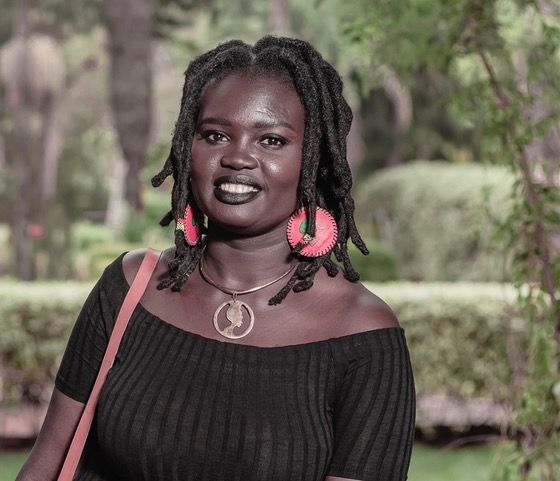“Everywhere I go, I must constantly cater for my interpreter because I know that when I go to meetings, training, or public events, it’s never a need put into consideration, even in human rights spaces here in South Sudan,” Atim Caroline.
This quote from Caroline, a Disability Rights Activist, illustrates how inaccessible our environment is for people with disabilities. Feminist or women’s rights groups, institutions, and initiatives that are not necessarily led by or focused on persons with disabilities are not exempt from this “inaccessible environment” reality for women and girls with disabilities in South Sudan. Privilege means not having to think about any of this every second or day of your life. Community is a core value of Ma’ Mara Sakit Village, and we cannot describe ourselves as a feminist community without the intentional and meaningful inclusion of all women and girls.
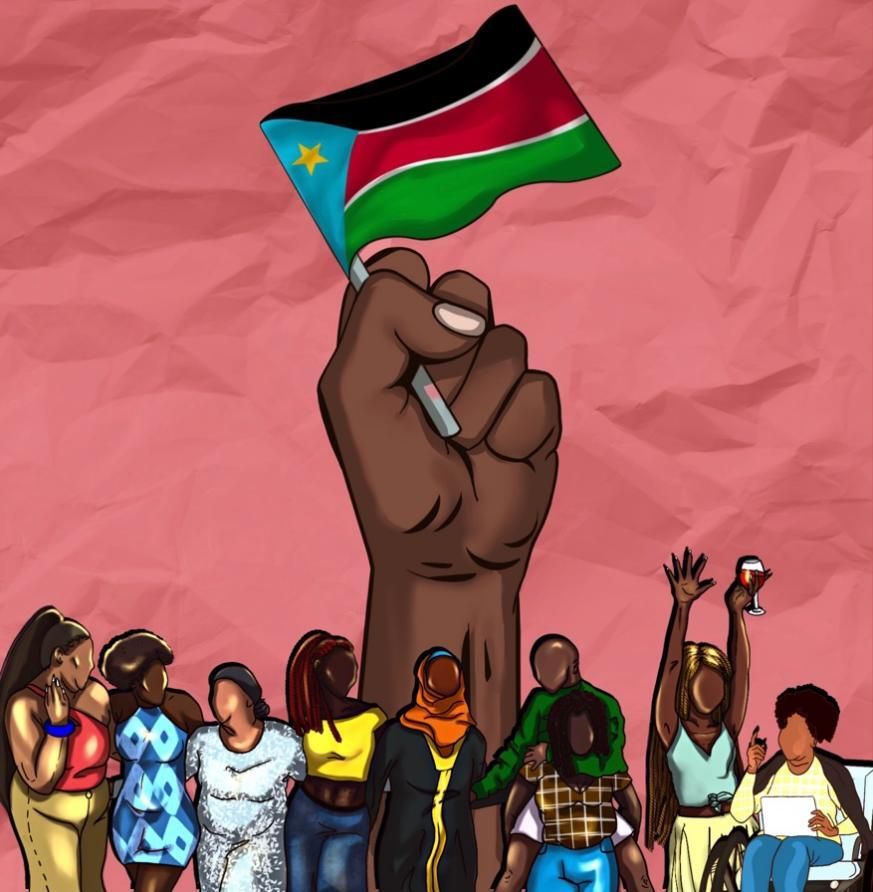
Gender Talk 211-Orange South Sudan Event, 2021
We have made significant progress in including women and girls with disabilities. This has not come easily; it has been and continues to be a learning process. Despite our awareness of what inclusivity means for our community, we often depend on external spaces to hold in-person events/activities because we still don’t have a space. In that regard, we have found ourselves struggling to find fully accessible spaces and have had to improvise to ensure our participants with disabilities can participate.
Despite this challenge often being beyond our control, we always acknowledge the shortcomings, apologize, and learn from the experience. Still, most importantly, we call out the space/venue owners by communicating the need to make their space accessible to all. The first time this occurred was during the Gender Talk 211-Orange South Sudan Event in 2021, where one of our panelists was a woman with a physical disability. Although it was an outdoor space, the venue featured a small, slightly raised stage, and our panelist with a disability required assistance to access the platform. Ajak Ibrahim, one of our team members who was a panelist, publicly pointed this out, and we took responsibility as a team.
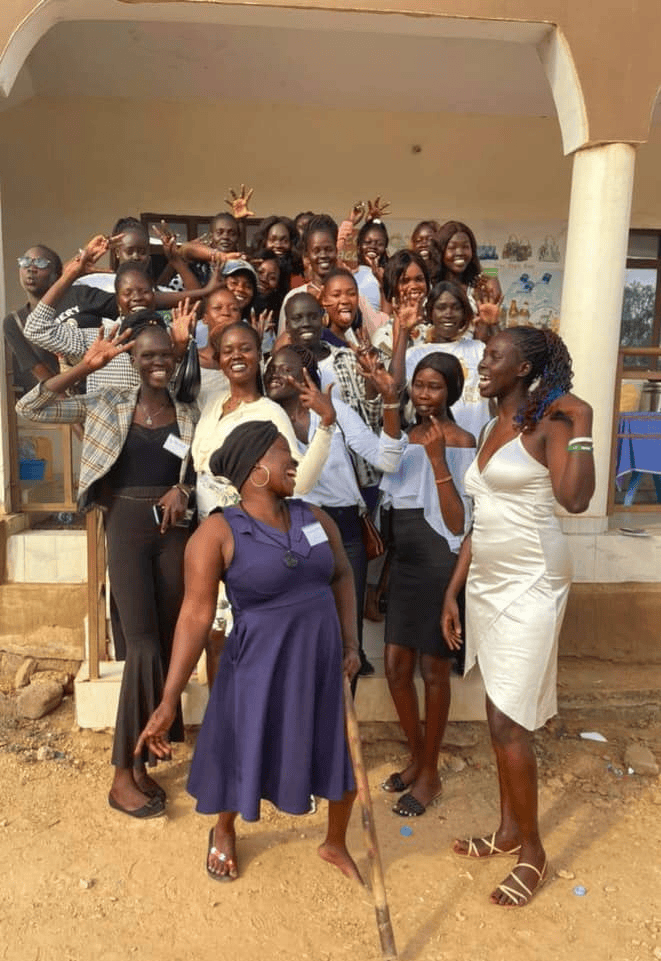
Feminists’ Talking Circle 2023
The second time we encountered an external inaccessible environment was during one of our Feminist Talking Circles in 2023. None of the venues that met our requirements for the gathering were fully accessible. Three of our participants were young women with disabilities, and one, in particular, had a physical disability. While the venue we chose was the ‘least’ inaccessible, it still had two steps leading to the workshop room and restrooms.
The challenges faced by individuals with disabilities in South Sudan extend beyond physical barriers to include limited access to resources, opportunities, and services, as well as discrimination and stigmatization, which place them at greater risk. The burden of advocating for the rights of people with disabilities must not rest solely on them; we all must be better allies and advocates, not just by words but by actions.
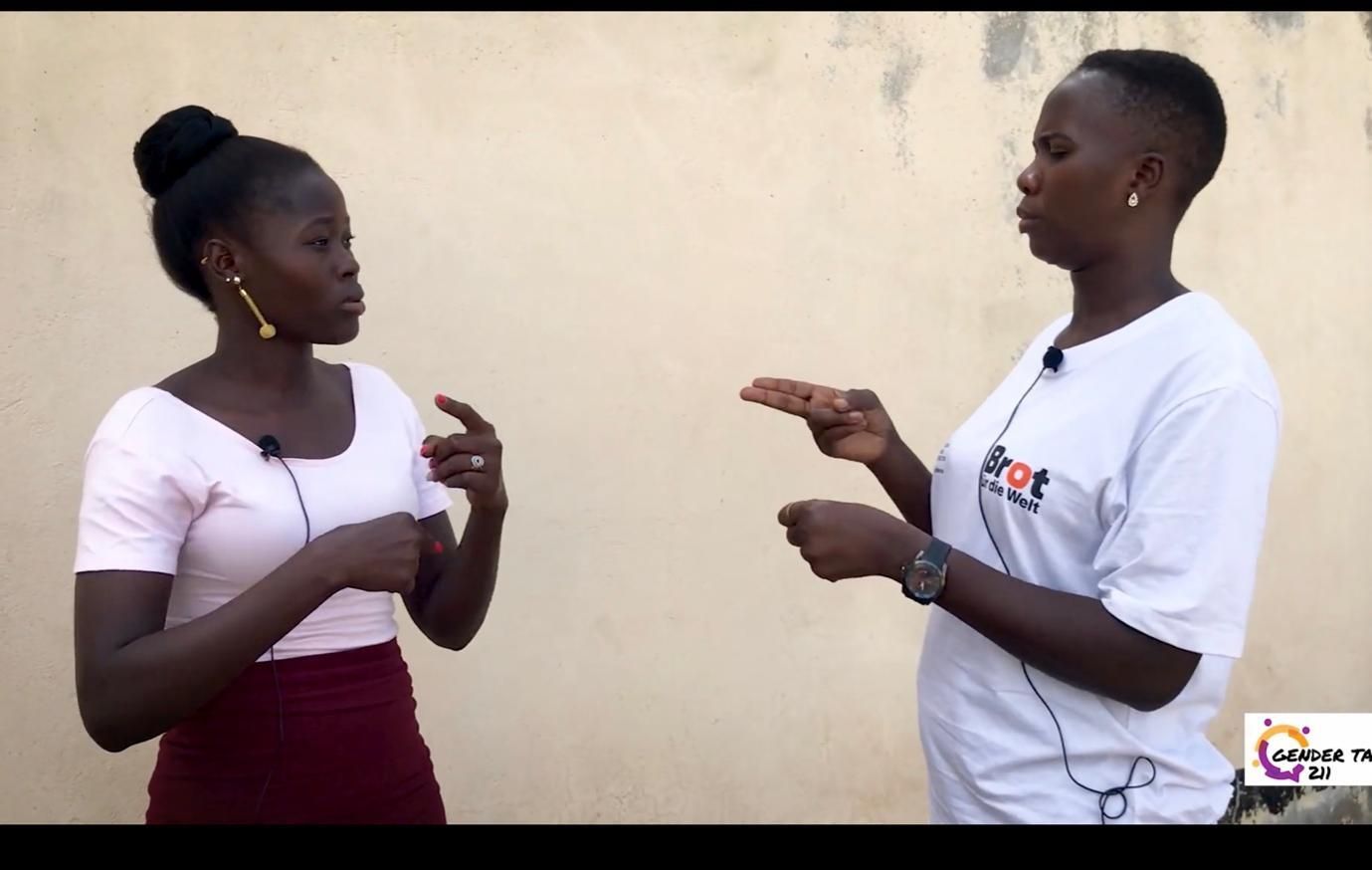
#SouthSudanWomenAt10 Campaign Series 2021
To get a glimpse of what a decade of South Sudan independence meant for South Sudanese, particularly women, in 2021, Gender Talk 211 launched the #SouthSudanWomenAt10 Independence campaign, a visual documentation of women's voices from different walks of life sharing their reflections, views, and hopes for the future. Gender Talk 211 featured women's experiences across South Sudan and beyond throughout South Sudan Independence month of July 2021.
One of the episodes was an interview with Josephine Kiden, the Director of Deaf Leading, reflecting on what the past 10 years of South Sudan’s Independence have been like for her and other women and girls with disabilities in South Sudan.
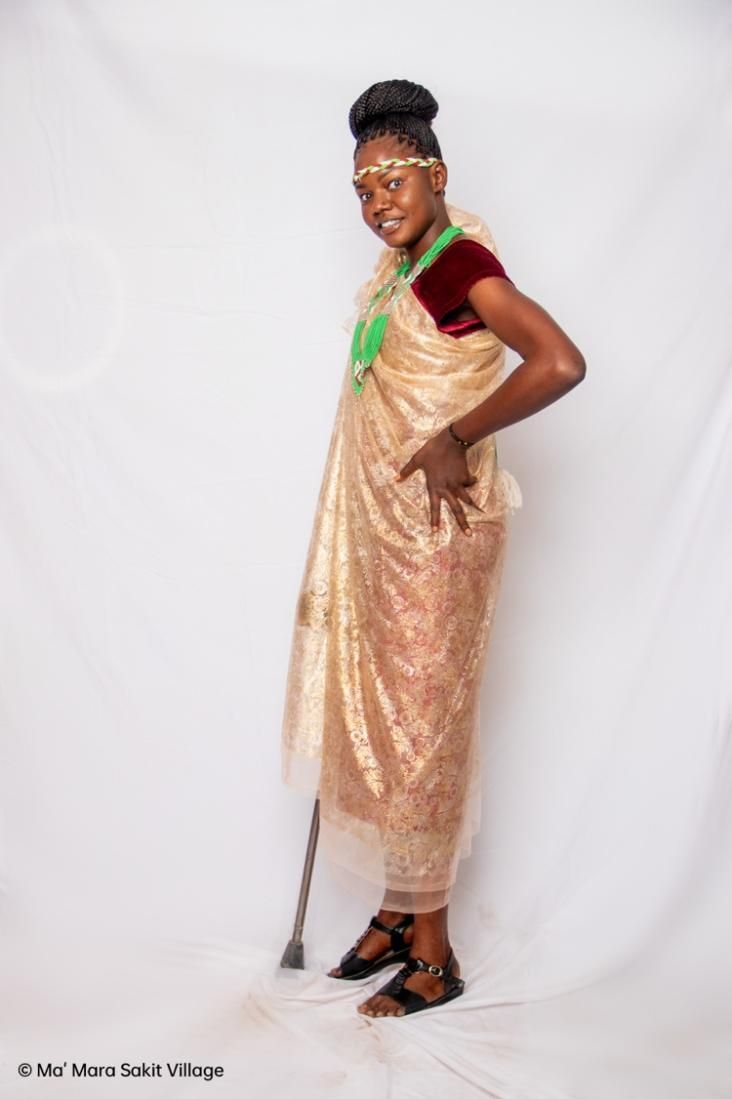
#ThisIsUs Part One 2022
While we must actively work towards meaningful participation, representation is still important, especially in media, particularly in contexts where inequality is the norm. In our Gender Talk 211 #ThisIsUs, a visual and written digital curation highlighting South Sudanese cultural wear, we always ensure the representation of persons with disabilities. This was during #ThisIsUs Part One digital duration, which featured 16 cultural South Sudanese attires in 2022.
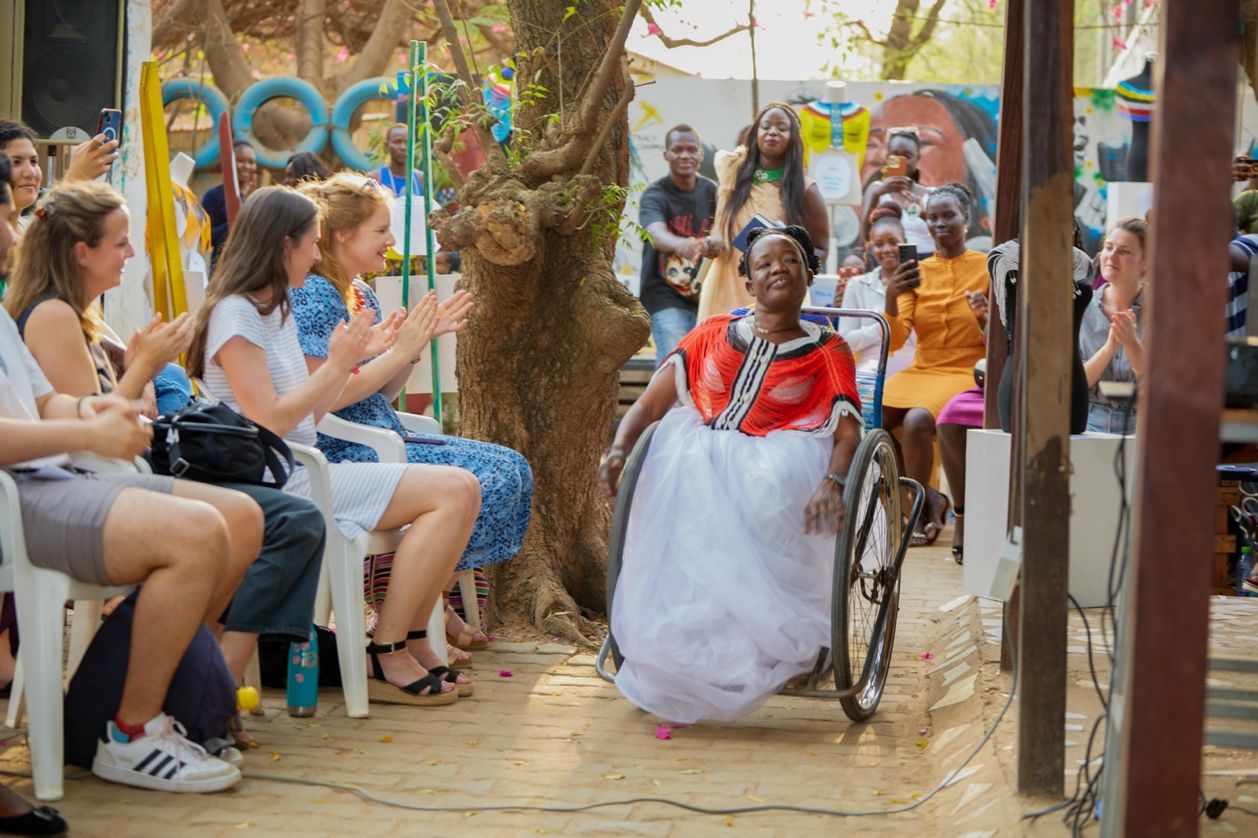
The Suk-Sukna Intergenerational Women’s Cultural Showcase in Juba, February 2023
The ‘Suk-Sukna project’ is Ma’ Mara Sakit Village bead-making project that aims to contribute to the preservation of the dying knowledge and skill of corset beadwork and create sustainable job opportunities for South Sudanese women and girls by enhancing their knowledge and skills in designing and recreating South Sudanese traditional beads to promote unique, beautiful, and creative South Sudanese and Pan-African cultures.
In this picture, we see one of the models, a young woman with a physical disability, showcasing one of the beaded Dinka corsets known as “Aluäl” during the Suk-Sukna Intergenerational Women’s Cultural Showcase.
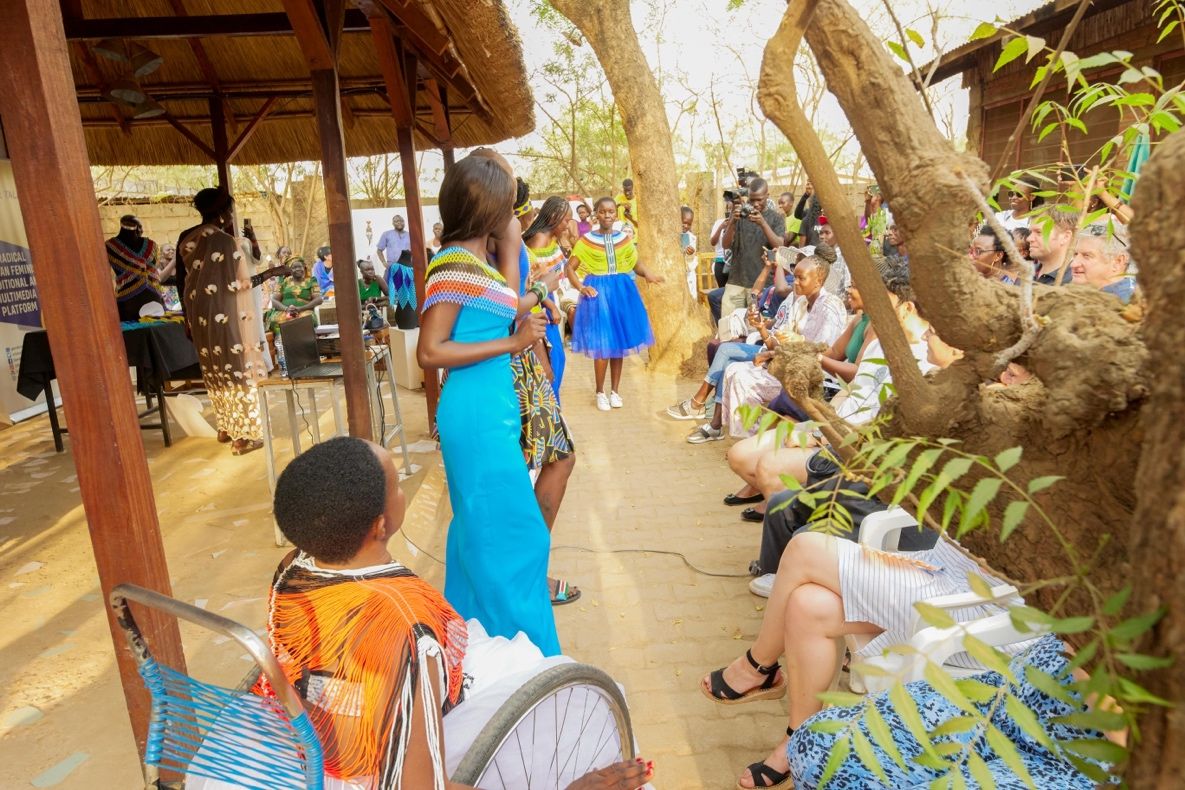
“Suk-Sukna” is a Juba Arabic phrase loosely translated to ‘our beads’
The Suk-Sukna Intergenerational Women’s Cultural Showcase offered a platform to present a short film highlighting the journeys of two expert breadmakers who guided and trained eight women and girls on beading the Dinka and Otuho corsets. As seen in this picture, this event featured eight models showcasing samples of the 30 corsets they produced while sharing insights into the historical and cultural significance of the various corset designs and colors.
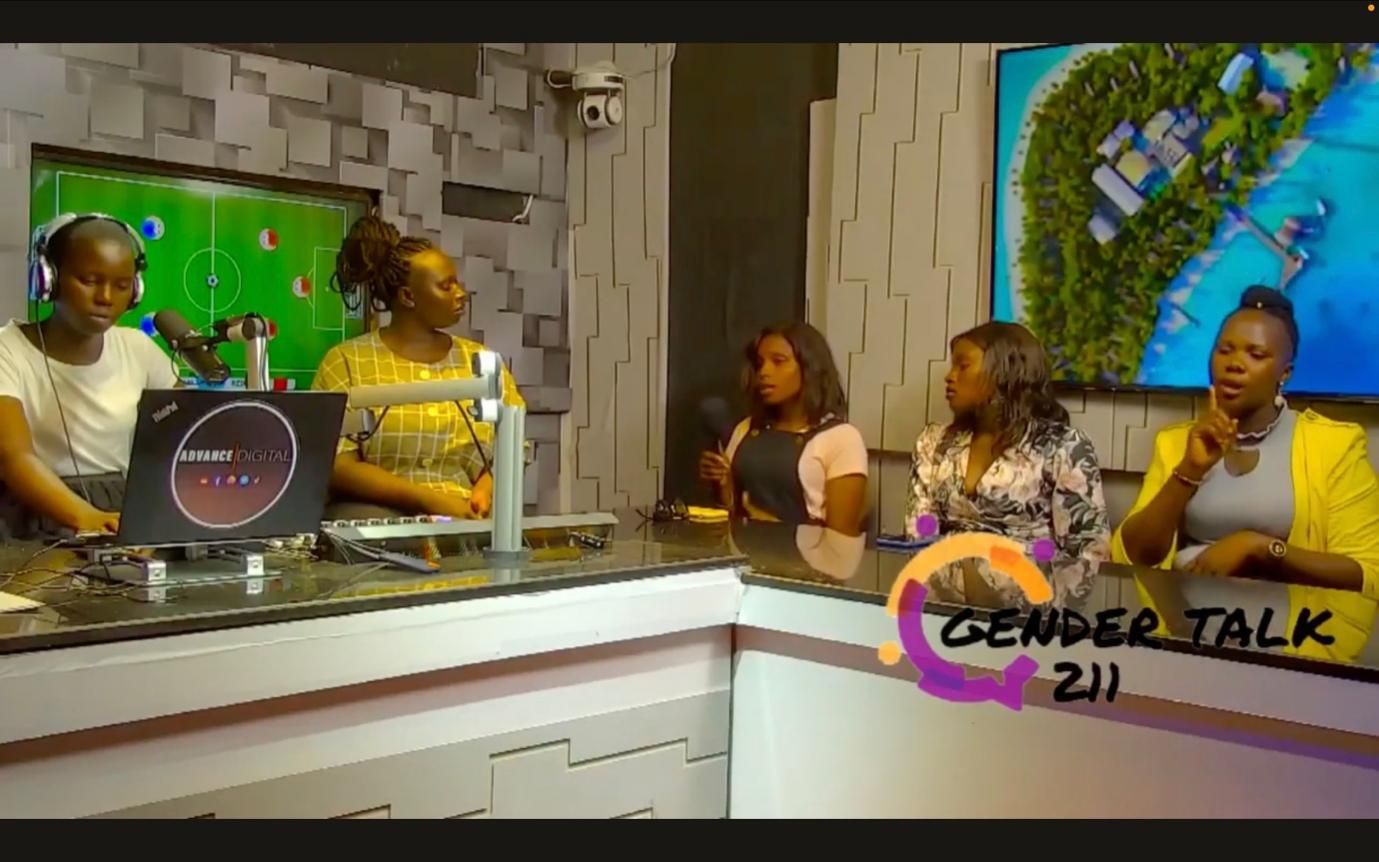
Gender Talk 211 Radio Show
In 2023, we incorporated sign language interpretation into our Gender Talk 211 radio talk show on Advance Digital, which is live-streamed on Facebook. Gender Talk 211 radio show was one of the first programs to include sign language interpretation in live-streamed radio shows on Facebook in South Sudan. We have seen it inspire other live-streamed radio shows on Facebook to adopt sign language interpretation, although this progress is still slow.
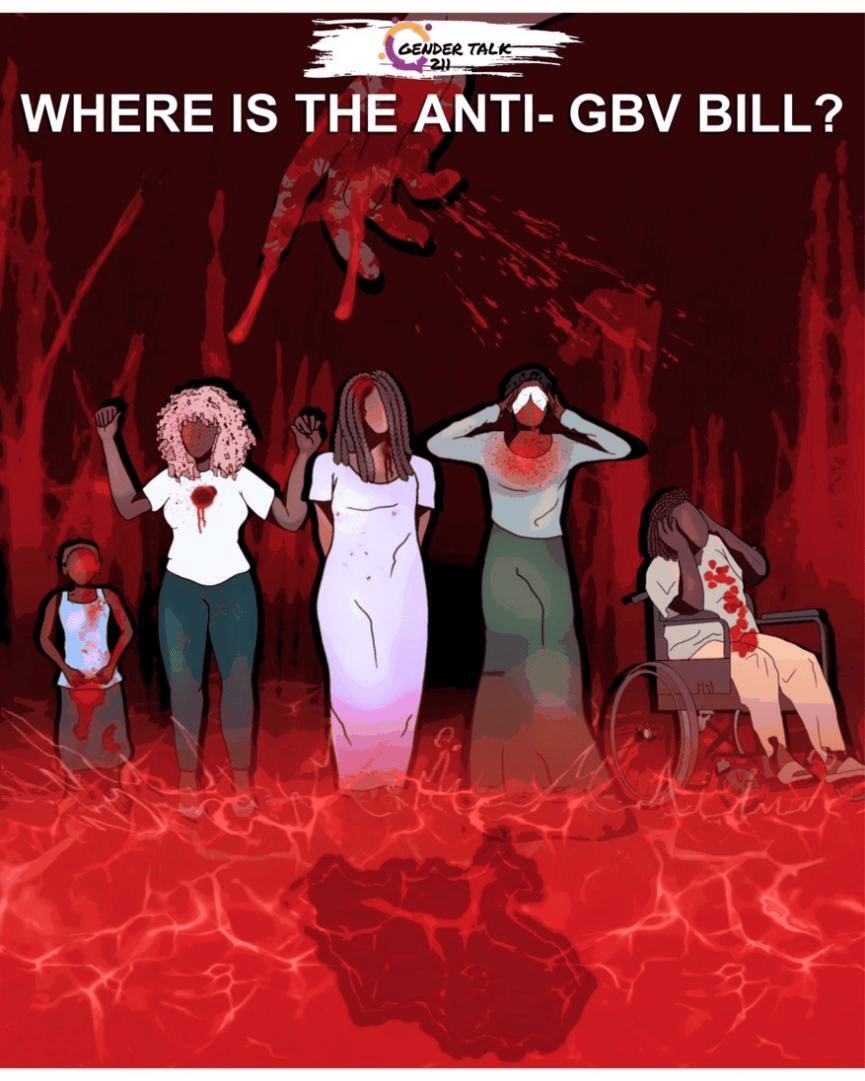
#WhereIsTheAntiGBVBill Campaign 2023
Our Gender Talk 211 program uses storytelling, narrative photography, research, creative art, and traditional and multimedia to tell, document, and digitize the past and present experiences and narratives of women and non-binary South Sudanese. Through the program’s website and social media platforms, we curate digital feminist campaigns and discussions.
In 2023, Ma’ Mara Sakit Village community of young women launched the #WhereIsTheAntiGBVBill campaign. This ongoing campaign aims to raise awareness of the bill drafted in 2019 that still has not moved from the Ministry of Justice and Constitutional Affairs and engage the relevant line government institutions to finalize the bill's formulation and send the bill to Parliament. In all our visual arts, we continue to ensure the representation of women with disabilities and that their realities are a part of the conversations.
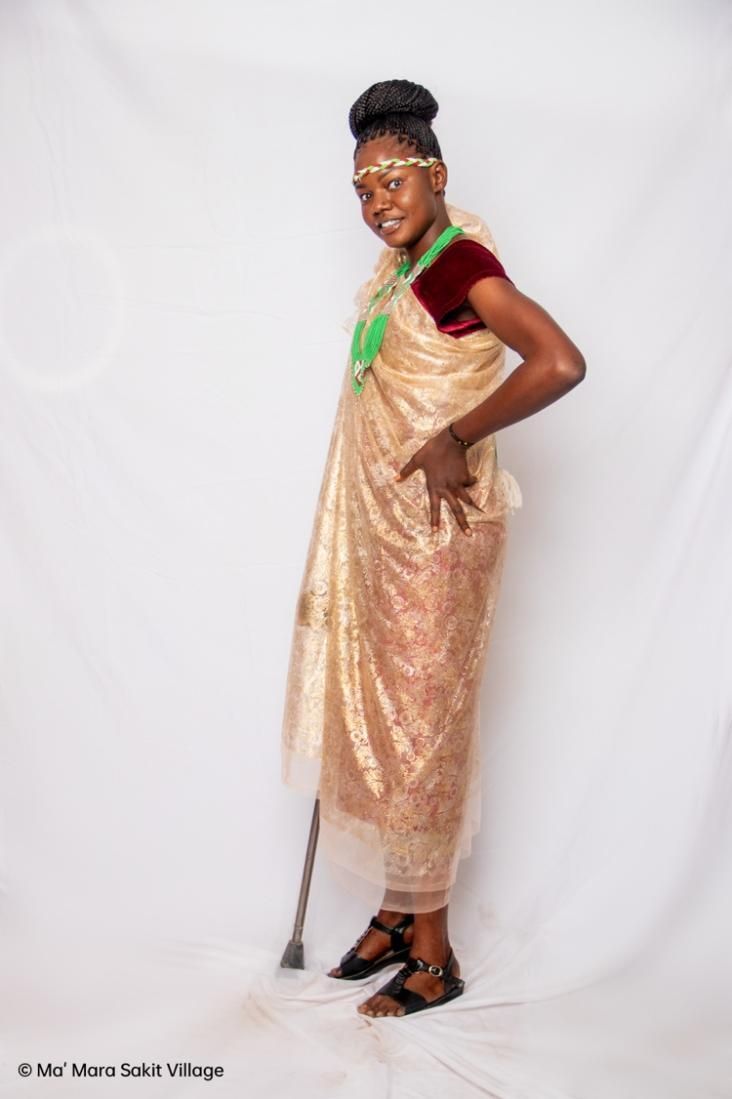
Inclusivity means you see the group as an integral part of everything you do because they are part of the community, and their realities and voices matter. In 2022, Ma’ Mara Sakit Village established a Programs Advisory Board that contributes to the mission through their knowledge, experience, expertise, and professional connections, which are essential resources that enable Ma’ Mara Sakit Village to implement its programs effectively. One of the advisors is a woman with a disability who ensures the meaningful inclusion of women with disabilities in our work.
Women and girls with disabilities face multiple intersecting forms of discrimination due to their ability status, in addition to other forms of oppression they continually navigate. It is crucial to approach everything we do from an intersectional lens. No one deserves to feel they don’t belong because of their identity; as women, we understand this more than anyone and must strive to ensure we are not perpetuating any form of discrimination against other women and girls in all their diverse identities in our feminism and women’s rights work.
